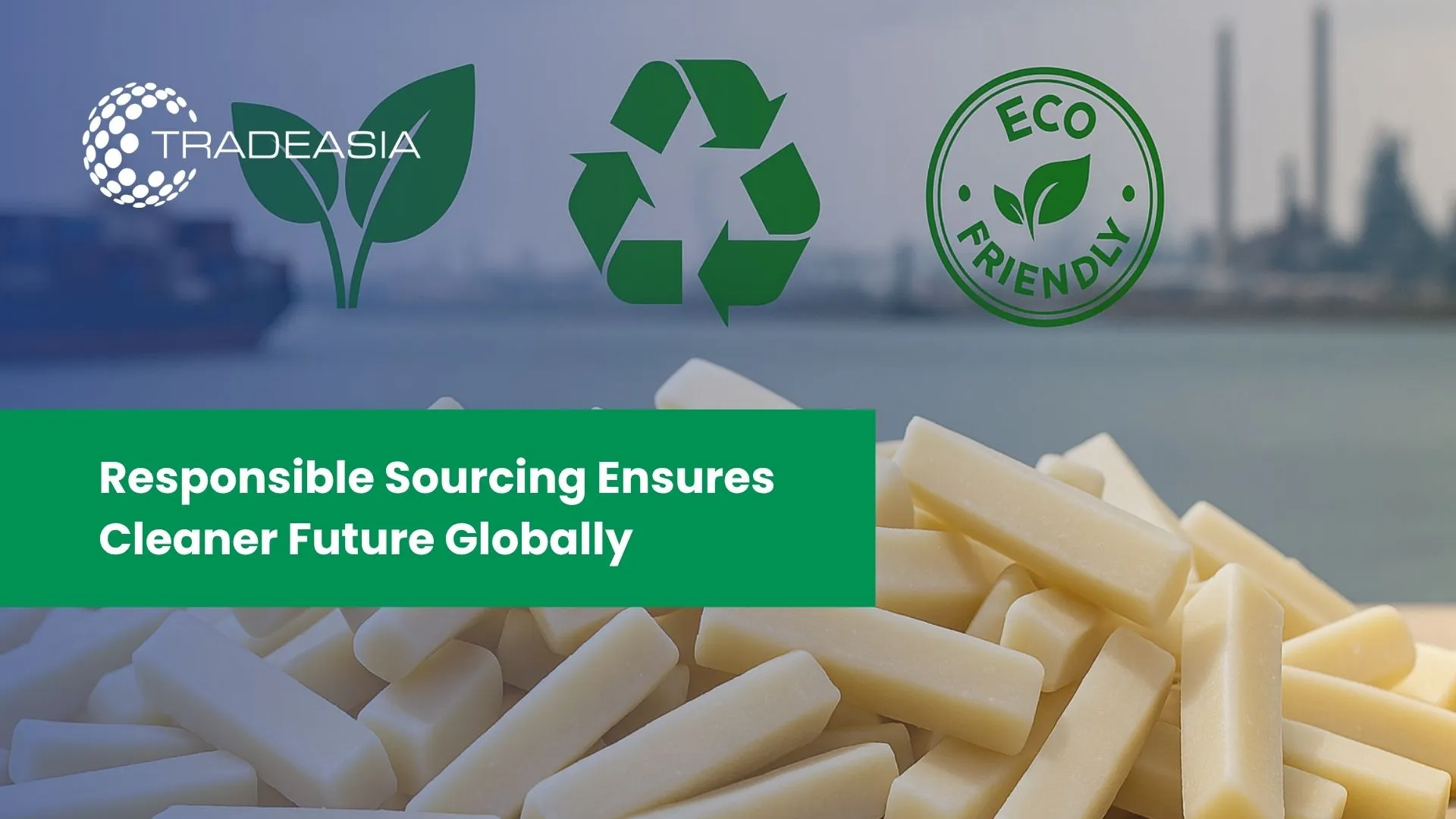Introduction to Soap Noodles in the Detergent Industry
Soap noodles are the foundational raw materials used in the production of bar soaps and a range of detergent products. Typically manufactured from a blend of vegetable oils such as palm oil, palm kernel oil, or animal fats, soap noodles form the base for customized soap formulations in both household and industrial cleaning applications. Their versatility makes them essential in creating products with varying levels of hardness, foaming, and moisturizing effects.
In the global detergent industry, soap noodles are recognized not only for their functionality but also for their role in sustainability discussions. As consumers increasingly demand eco-friendly cleaning products, the sourcing and production of soap noodles are under scrutiny. Issues such as deforestation, carbon footprints, and sustainable certification schemes play a significant role in determining how manufacturers approach raw material procurement.
The importance of soap noodles extends beyond their chemical properties. They act as a bridge between raw agricultural commodities and finished consumer goods, linking supply chains from plantations to detergent factories. This position underscores their significance in discussions about responsible sourcing and sustainable consumption.
As the detergent industry moves toward circular economy practices and climate-conscious production, soap noodles will remain central to sustainability efforts. The coming decade will see manufacturers balancing cost efficiency, environmental impact, and consumer expectations in sourcing these critical raw materials.
The Role of Soap Noodles as Raw Materials
Soap noodles serve as the backbone of bar soap production, providing manufacturers with a standardized base that can be further customized with additives, fragrances, and colors. Their consistency ensures reliable product quality, which is critical for both mass-market and premium detergent brands.
In addition to personal care soaps, soap noodles are used in industrial and institutional cleaning products. Their ability to be modified for hardness, foaming, or mildness makes them suitable for diverse markets, from household use to hospital sanitation and industrial cleaning solutions.
Soap noodles also serve as a cost-efficient production input. By centralizing the complex saponification process at dedicated plants, detergent manufacturers can focus on customization and branding. This system enhances supply chain efficiency and ensures that even smaller companies can compete effectively in global markets.
As the global detergent industry continues to expand, particularly in emerging markets, the demand for soap noodles will grow correspondingly. Their adaptability, cost-effectiveness, and sustainability profile ensure they remain indispensable raw materials in detergent manufacturing.
Global Sourcing of Soap Noodles
The sourcing of soap noodles is closely tied to the vegetable oil industry, particularly palm oil. Southeast Asian countries such as Malaysia and Indonesia dominate global production, supplying the majority of the world’s soap noodles. Their vast oil palm plantations provide the feedstock necessary for large-scale soap noodle manufacturing.
Other sources include coconut oil and tallow-based soap noodles, which cater to niche markets requiring specific formulations. While animal-based soap noodles are less common in modern markets, they continue to serve certain regional industries and applications.
Global sourcing dynamics are shaped by trade networks, logistics, and sustainability certifications. Companies operating internationally must navigate differences in import regulations, consumer preferences, and sustainability requirements to secure reliable supplies of soap noodles.
Singapore, as a regional trade hub, plays a significant role in soap noodle distribution. Its strategic position allows it to connect producers in Southeast Asia with detergent manufacturers across global markets, ensuring stable supply chains.
Sustainability Challenges in Soap Noodle Production
The greatest sustainability challenge lies in the palm oil supply chain, which is often associated with deforestation, habitat loss, and greenhouse gas emissions. Since palm oil is the primary raw material for soap noodles, these concerns directly affect the detergent industry’s reputation.
Another challenge is the carbon footprint of transportation. Soap noodles are often shipped in bulk from Southeast Asia to markets in Europe, Africa, and North America. This long-distance trade increases emissions and raises questions about the environmental costs of global supply chains.
Water and energy usage during soap noodle production also present sustainability issues. Efficient water recycling and the adoption of renewable energy are increasingly expected from manufacturers to align with global sustainability goals.
Addressing these challenges requires a combination of certified sustainable sourcing, process innovation, and global cooperation. Companies that fail to address these issues risk reputational damage and reduced competitiveness in eco-conscious markets.
Innovations Driving Eco-Friendly Soap Noodles
One innovation trend is the adoption of RSPO-certified palm oil (Roundtable on Sustainable Palm Oil). By sourcing certified palm oil, manufacturers can demonstrate commitment to sustainable practices and reassure consumers of ethical sourcing.
Another innovation lies in alternative raw materials. Coconut oil, shea butter, and other vegetable oils are being explored as substitutes or supplements to palm oil. While they currently represent niche markets, advances in sourcing and processing could expand their role in the future.
Green manufacturing technologies are also gaining traction. Manufacturers are investing in energy-efficient saponification processes, waste-to-energy systems, and circular economy practices that reduce environmental impact while maintaining profitability.
These innovations not only improve environmental performance but also create opportunities for brand differentiation. Eco-friendly soap noodles are increasingly seen as a competitive advantage in both developed and emerging markets.
Market Demand Drivers in the Detergent Industry
One key demand driver is the growing global population. With more people worldwide requiring hygiene products, the consumption of detergents and soaps continues to rise steadily.
Urbanization and changing lifestyles further increase demand. In cities, consumers often prioritize convenience, hygiene, and branded products, all of which depend on soap noodles as a fundamental raw material.
The rise of sustainability-conscious consumers also shapes demand. Consumers are actively seeking detergents made with responsibly sourced ingredients, pushing manufacturers to highlight eco-friendly soap noodles in their branding.
Emerging economies, particularly in Africa and Asia, represent significant growth markets. Rising incomes and hygiene awareness will drive soap noodle demand, making global sourcing strategies essential for long-term industry success.
Opportunities for Sustainable Sourcing Practices
The detergent industry has opportunities to transform soap noodle sourcing into a model for responsible supply chains. This includes investing in RSPO-certified palm oil, enhancing transparency, and collaborating with stakeholders to reduce deforestation impacts. Opportunities also exist in regional diversification. By developing supply chains for coconut, soybean, or other vegetable oils, companies can reduce dependency on palm oil while promoting more balanced sourcing practices.
Another opportunity lies in technological innovation. Blockchain and digital traceability tools can enhance supply chain transparency, allowing companies to track the sustainability credentials of soap noodles from plantation to finished detergent. By embracing these practices, detergent manufacturers can not only reduce environmental risks but also strengthen brand reputation and consumer loyalty in a competitive global market.
Regional Insights and Trade Dynamics
Asia-Pacific dominates both production and consumption of soap noodles. Southeast Asia’s palm oil base ensures cost advantages, while rising populations in India, China, and Indonesia fuel strong demand for detergents. Europe focuses on sustainability. Consumer preferences for natural and eco-labeled products drive demand for certified soap noodles. Strict EU regulations on sustainability ensure only compliant products succeed in the region.
North America represents a mature market with steady demand, driven by premium and eco-friendly segments. Soap noodles sourced from certified sustainable supply chains gain traction among health- and environment-conscious consumers. Africa and Latin America are emerging as key growth markets. Rising incomes, hygiene awareness, and expanding retail networks create opportunities for detergent producers to supply affordable soap noodles in these regions.
Market Outlook 2025 - 2035
Between 2025 and 2035, the global soap noodle market is projected to grow at a CAGR of 4–5%, driven by expanding detergent consumption and sustainability trends. Household and personal care soaps will remain the largest segment, while industrial cleaning applications provide additional growth.
Sustainability will be the defining theme. Manufacturers investing in certified sourcing, eco-friendly technologies, and transparent supply chains will capture greater market share. Non-compliant producers risk exclusion from premium and regulated markets.
Emerging economies will contribute significantly to demand growth, while developed regions will drive innovation and sustainability standards. By 2035, soap noodles will remain the cornerstone of detergent manufacturing, but their sourcing practices will be far more transparent and environmentally responsible.
Conclusion
Soap noodles are indispensable raw materials in the detergent industry, linking agricultural commodities to consumer hygiene products. Their role extends beyond performance into broader discussions about sustainability, responsible sourcing, and global trade.
The challenges associated with palm oil and environmental impacts require urgent attention, but opportunities for innovation and sustainability are equally significant. Certified sourcing, green technologies, and supply chain transparency can transform soap noodles into a benchmark for responsible raw materials.
From 2025 to 2035, the global soap noodle market will grow steadily, supported by population growth, urbanization, and hygiene awareness. Manufacturers that prioritize sustainability will not only meet consumer expectations but also secure a competitive advantage in global markets.
Ultimately, soap noodles represent more than just a raw material. They are a gateway to a sustainable detergent industry, balancing performance, cost, and environmental responsibility in shaping the future of global cleaning products. For further details or to connect with trusted soap noodle suppliers, reach out to our team today.
References


Leave a Comment